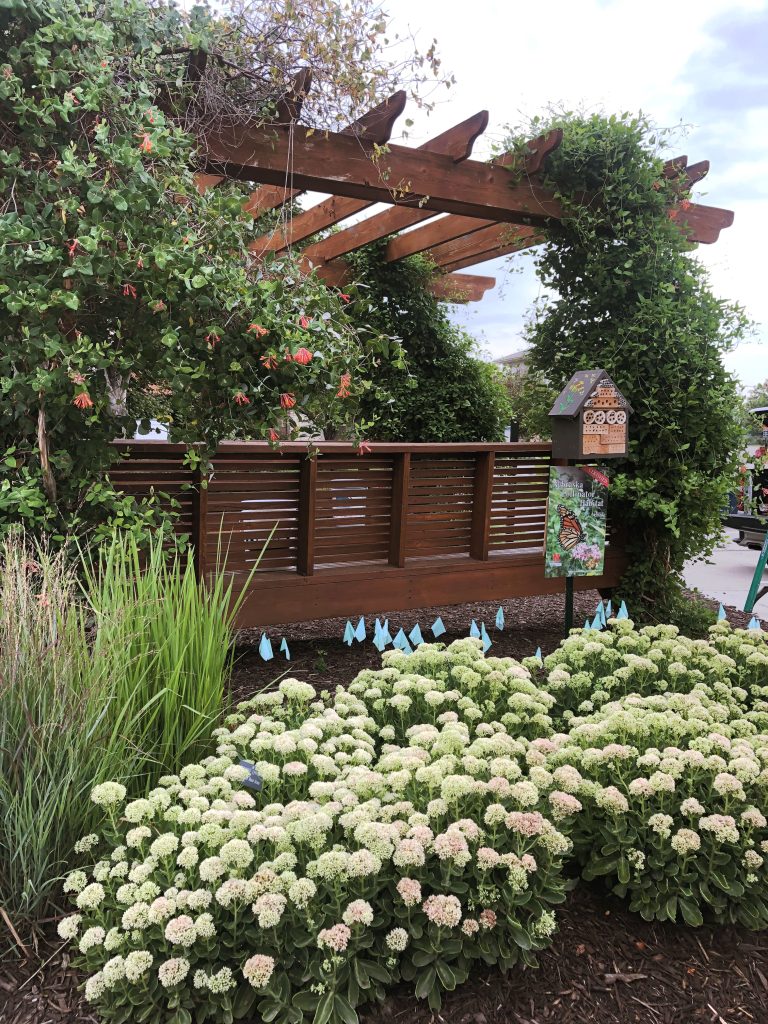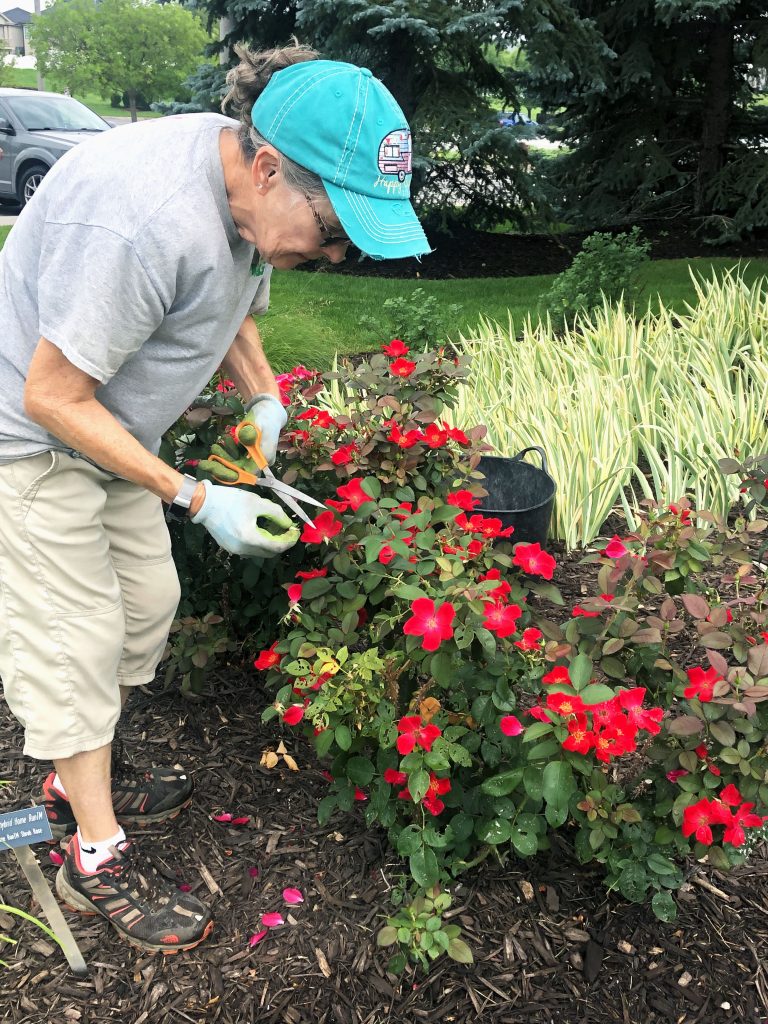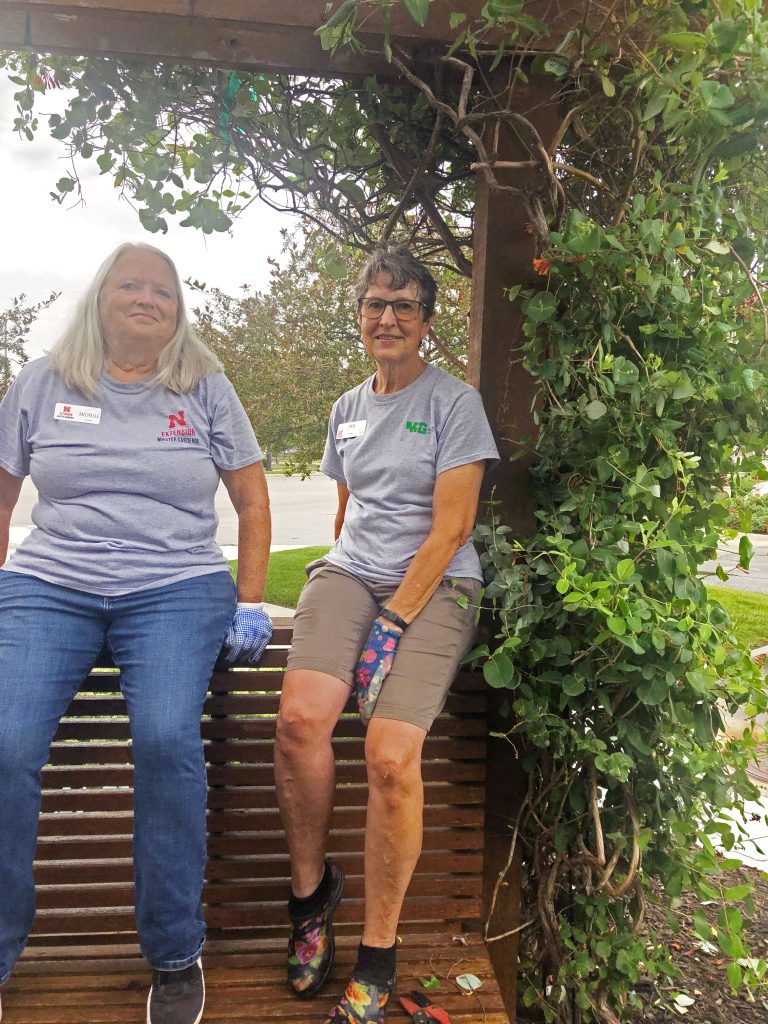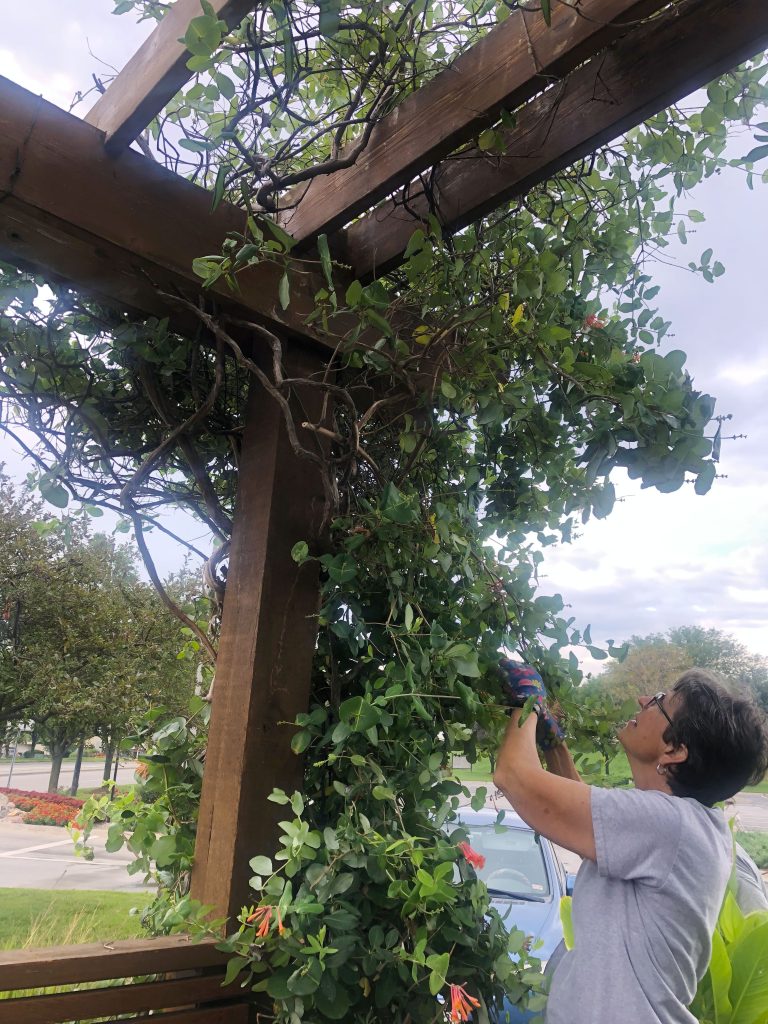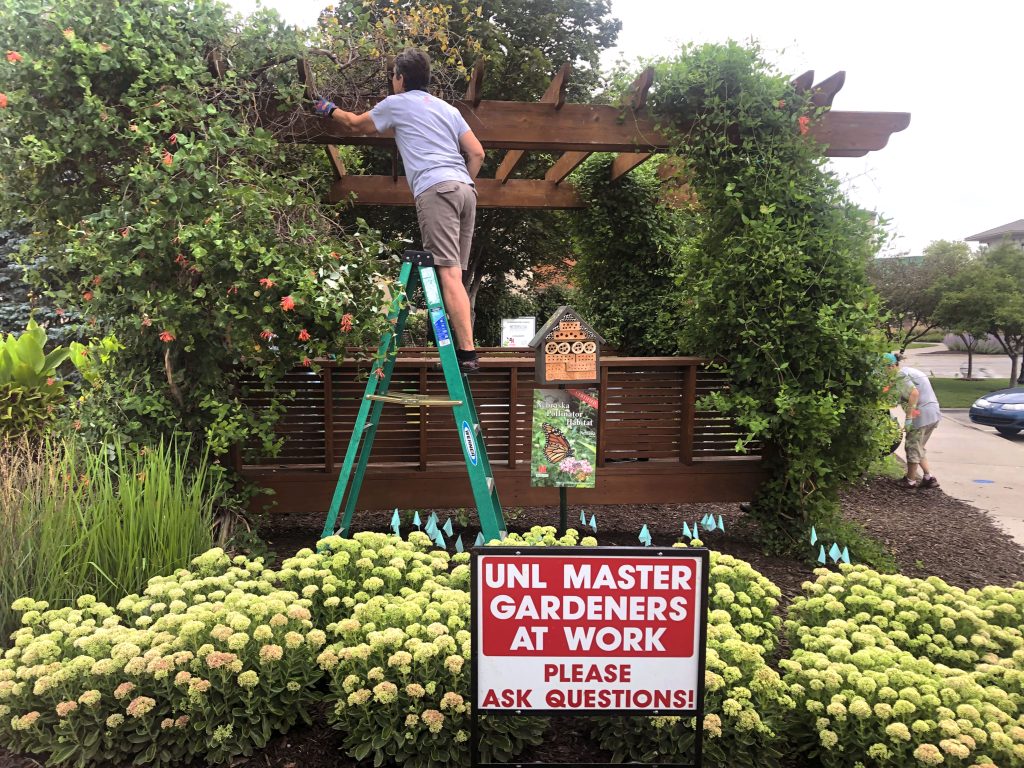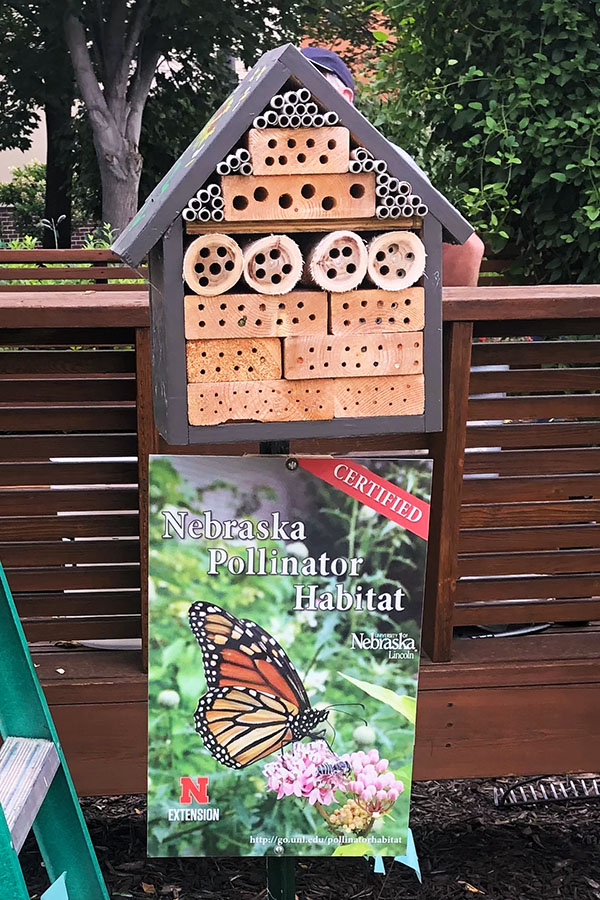Partnering to Demonstrate Sustainability and Water Conservation
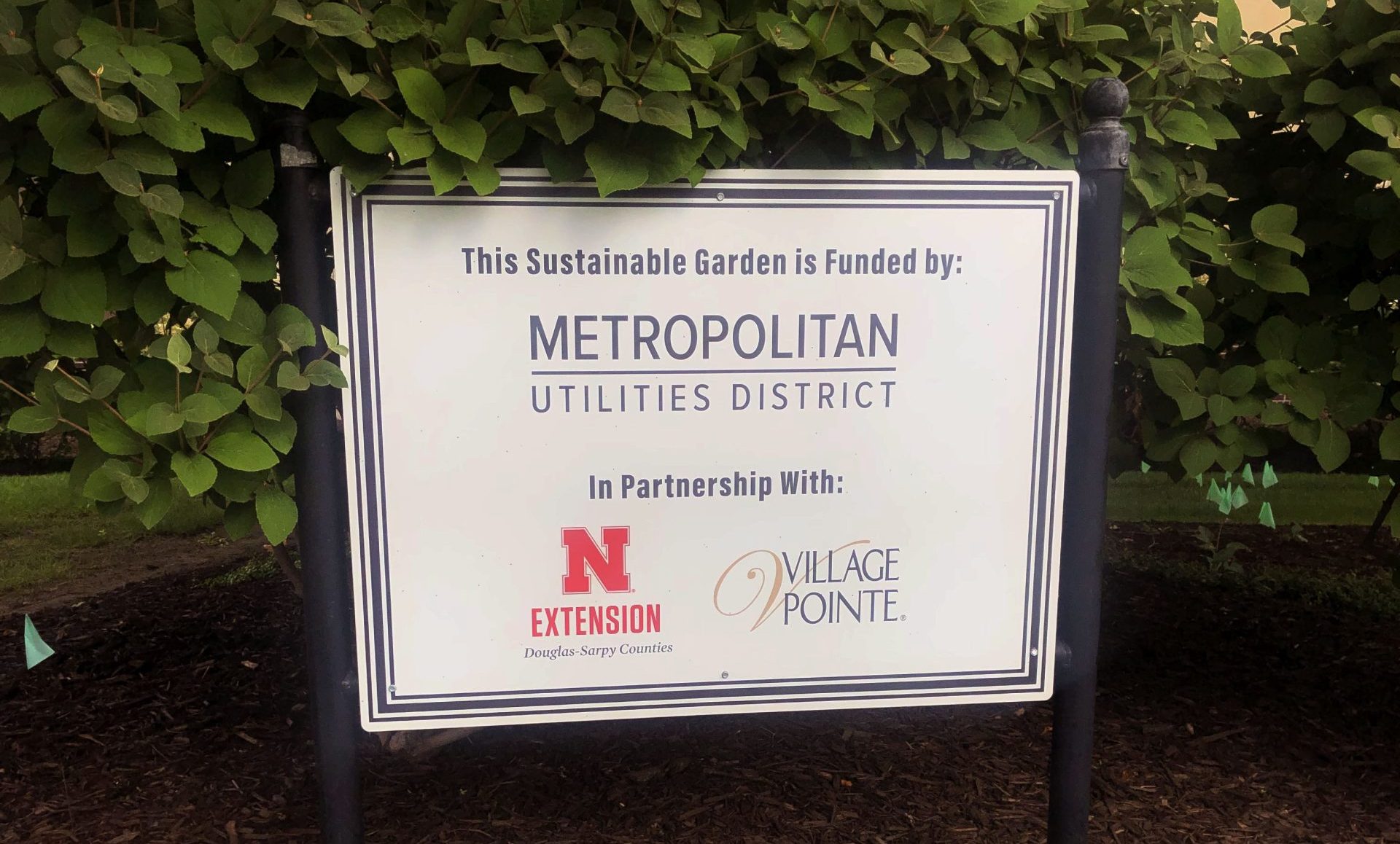
For 20 years Metropolitan Utilities District (M.U.D.) has partnered with the University of Nebraska-Lincoln (UNL) Extension Office on a sustainability garden at Village Pointe Shopping Center.
M.U.D. currently provides most of the supplies and materials for the garden, which features low water-use plants. John Fech, UNL extension educator, and his band of Master Gardeners, including Bill Pospichal, Jan McAlpine, Debbie Brozanic, Michelle Ortega and Laura McElligott, are responsible for the technical and creative gardening aspects.
From providing consistent care to the existing plants to designing new concepts to maximize the garden’s capabilities, Fech and the Master Gardeners work hard to create a space that both practices sustainability while also maintaining curb appeal.
A big focus of the garden is to practice water conservation. According to Fech, they pick plants based on the “right plant, right place” principles. This means analyzing the landscape and identifying what the best course of action would be. For this space, that means keeping turf and ornamentals separate and incorporating a lot of low water-use perennials.
To further maximize water conservation and retention, mulch is strategically placed over the garden beds to help retain water for longer periods with minimal evaporation. This especially helps during times of little rain.
“Different aspects of the garden have different needs, so it is very important to keep things such as the ornamentals and the turf separate so that those needs can be met, and sustainability can be maintained,” Fech said.
The garden not only helps to reduce the community’s water usage but also helps the wildlife around it. An example of this is demonstrated through the Nebraska Pollinator Habitat. This new handmade addition helps with pollination in the garden as well as the surrounding urban areas. Adequate pollination throughout the year is a key factor in a happy and healthy garden.
All these factors and more play a big part in the conservation and sustainability aspect of the project, as well as M.U.D.’s Conservation Public Education Programs.
A current project the Master Gardeners are working to implement into the garden is a new raised garden bed under the shaded area toward the back of the garden. This will hopefully allow for a more successful integration of plants, such as Hosta and bleeding hearts (Dicentra spp.), that can thrive under more shaded areas.
“We want to make it look uncontrived, in the shape of an eyebrow, in hopes to add an organic flow to the space,” said Master Gardener Bill Pospichal. The switch from full sun to full shade in certain areas of the garden, due to tree growth, is why innovative ideas like this are critical.
Another focus of the garden is to educate people on how gardens can play a part in water conservation.
Fech said, “I highly encourage Village Pointe shoppers to come early on a Thursday morning and interact with the garden. These Master Gardeners are very knowledgeable, veteran folks who have been in our program for several years and have received a lot of training, and are ready and willing to share their information, experiences and knowledge with you.” The garden provides walking paths, plant identification signs and an arbor with a seating area.
The interaction between the gardeners and the community helps create a better understanding for how to care for sustainable garden life.
If you are interested in speaking with the Master Gardeners, they are normally at the garden on Thursdays from 8–10 a.m.
